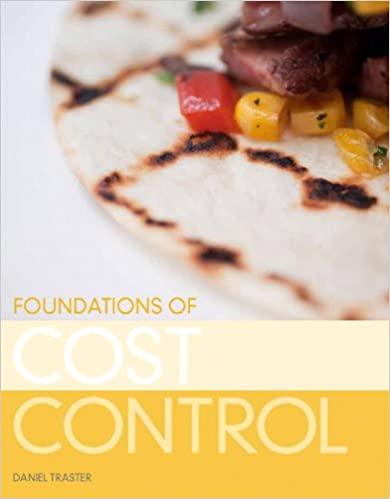Question
On December 31, Year 1, RAV Company purchased 60% of the outstanding common shares of ENS Company for $1,260,000. On that date, ENS had common
| On December 31, Year 1, RAV Company purchased 60% of the outstanding common shares of ENS Company for $1,260,000. On that date, ENS had common shares of $500,000 and retained earnings of $130,000. In negotiating the purchase price, it was agreed that recorded assets and liabilities were fairly valued except for equipment, which had a $24,000 excess of carrying amount over fair value, and land, which had a $150,000 excess of fair value over carrying amount. The equipment had a remaining useful life of six years at the acquisition date and no salvage value. ENS did not record the fair value deficiency on the equipment because ENS felt that it would recover the carrying amount of this equipment through future cash flows. In addition, ENS registered and owns a number of Internet domain names, which are estimated to be worth $100,000. The right to the names expires in 12 years but the registration can be renewed for 20 years every 20 years, for a nominal fee. |
| The adjusted trial balances for RAV and ENS for the year ended December 31, Year 5, were as follows: |
| RAV | ENS | ||||
| Cash | $ | 175,000 | $ | 91,000 | |
| Accounts receivable | 261,000 | 242,000 | |||
| Inventory | 626,000 | 305,000 | |||
| Land | 700,000 | 330,000 | |||
| Buildingnet | 870,000 | 665,000 | |||
| Equipmentnet | 722,000 | 397,000 | |||
| Investment in ENS | 654,600 | - | |||
| Cost of goods purchased | 2,388,000 | 2,377,000 | |||
| Change in inventory | 92,000 | (46,000) | |||
| Amortization expense | 208,000 | 104,000 | |||
| Income taxes and other expenses | 912,000 | 448,000 | |||
| Dividends paid | 416,400 | 256,000 | |||
| Total debits | $ | 8,025,000 | $ | 5,169,000 | |
| Accounts payable | $ | 481,000 | $ | 328,000 | |
| Long-term debt | 349,200 | 732,000 | |||
| Common shares | 1,200,000 | 500,000 | |||
| Retained earnings, beginning | 615,000 | 279,000 | |||
| Sales | 5,020,000 | 3,330,000 | |||
| Other revenues | 109,000 | ||||
| Investment income from ENS | 250,800 | ||||
| Total credits | $ | 8,025,000 | $ | 5,169,000 | |
| Additional Information: |
| Each year, goodwill is evaluated to determine if there has been a loss. The recoverable amount for ENSs goodwill was valued at $100,000 at the end of Year 4 and $75,000 at the end of Year 5. | |
| RAVs inventories contained $450,000 of merchandise purchased from ENS at December 31, Year 5, and $350,000 at December 31, Year 4. During Year 5, sales from ENS to RAV were $650,000. Merchandise was priced at the same profit margin as applicable to other customers. RAV owed $182,000 to ENS at December 31, Year 5, and $190,000 at December 31, Year 4. | |
| On July 1, Year 2, ENS purchased a building from RAV for $782,000. The building had an original cost of $832,000 and a carrying amount of $632,000 on RAVs books on July 1, Year 2. ENS estimated the remaining life of the building was 15 years at the time of the purchase from RAV. | |
| ENS rented another building from RAV throughout the year for $6,000 per month. | |
| RAV uses the equity method of accounting for its long-term investments. | |
| Both companies pay tax at the rate of 40%. Ignore deferred income taxes when allocating and amortizing the acquisition differential. |
Required:
| (a) | Prepare a consolidated income statement for the year ended December 31, Year 5. (Round to 1 decimal place) |
| (b) | Prepare the current assets, property, plant, and equipment and intangible assets sections of the consolidated balance sheet at December 31, Year 5. |
| (c) | Calculate non-controlling interest on the consolidated balance sheet at December 31, Year 4 |
d) If RAV had used the cost method instead of the equity method of accounting for its investment in ENS, would RAV'S net income for year 5 increase, decrease or remain the same on i) it's separate-entity income statement? ii) the consolidated income statement?
Step by Step Solution
There are 3 Steps involved in it
Step: 1

Get Instant Access to Expert-Tailored Solutions
See step-by-step solutions with expert insights and AI powered tools for academic success
Step: 2

Step: 3

Ace Your Homework with AI
Get the answers you need in no time with our AI-driven, step-by-step assistance
Get Started


